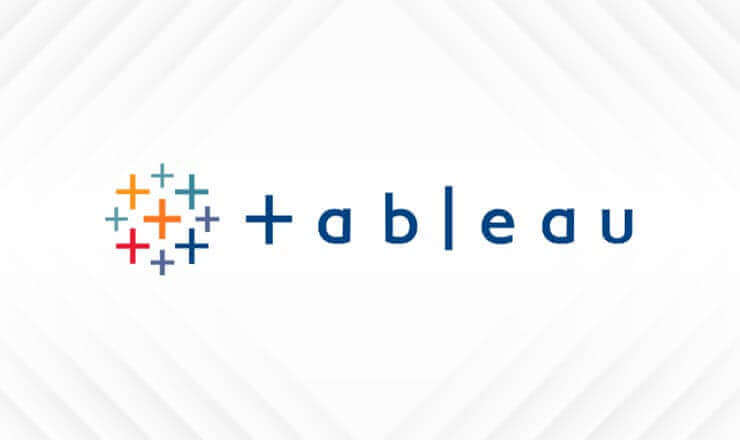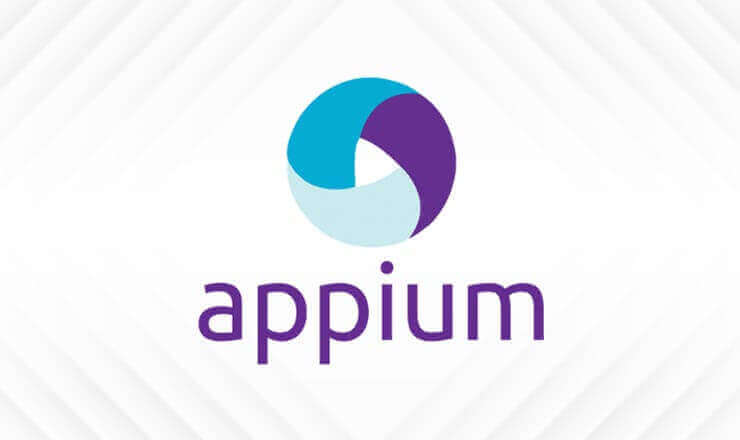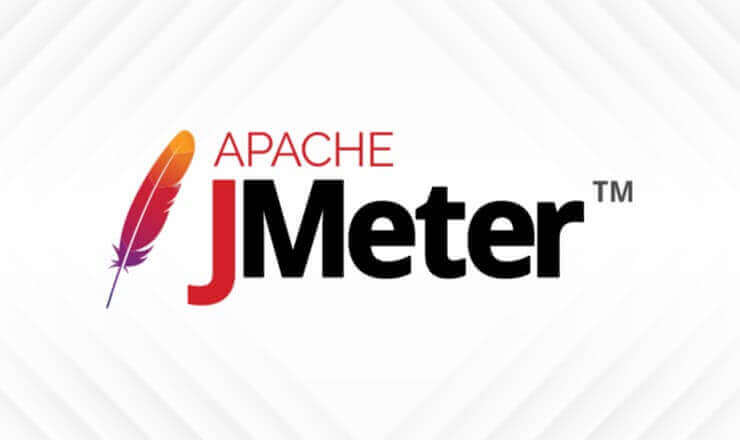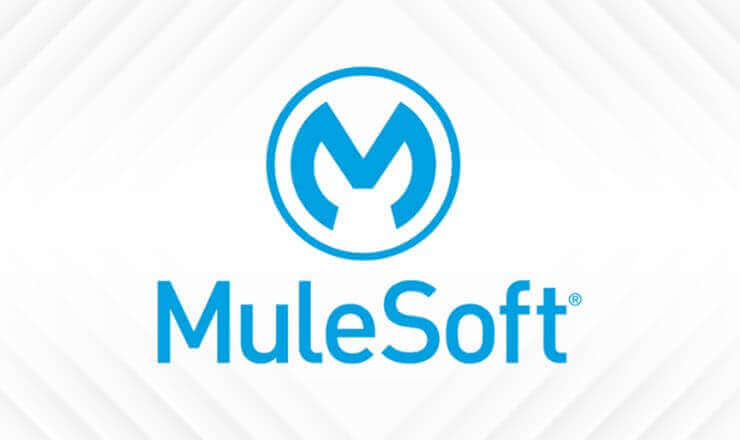The fact that Java is versatile makes it ideal for different applications. TechPro Education's Full Stack Java Developer course provides expert-guided Java training for a successful software career.
Summary
Java is one of the most popular programming languages for creating programmes that can run on computers and mobile devices. Java's Object Oriented Programming runs on several devices, making it ideal for developing websites, games, and mobile apps. It enables a Java programme to be written once and applied to a number of different devices. Due to these and other powerful features, Java has remained one of the three most popular programming languages for the past two decades.
A full-stack Java developer has both front-and back-end development skills and is able to handle different aspects of the development of web applications. They know Java programming language and related technologies. By combining their front-end development skills with back-end skills in Java, Full-Stack Java developers can create end-to-end web applications, handle data processing, and deliver smooth user experiences.
Why Java?
We can sum up why Java is so popular in 5 points as follows:
1. Java is a very easy language to learn and use compared with other languages.
2. Java is platform independent language. It works everywhere, in every environment.
3. Java is an "object-oriented" language. So you can create modular programmes and code blocks that you can use as if you were playing with the pieces of a jigsaw puzzle.
4. While many other languages have specific uses, Java's use is very wide.
5. Because of many job opportunities, someone familiar with Java can easily find a job.
All these features make knowledge of Java an essential skill for those seeking a career in the software industry. TechPro Education's expert instructors, cutting-edge technologies, and academic approach equip you with advanced Java programming skills so you can achieve your career goals.
Become a Full Stack Java Developer in 36 Weeks
- - Learn from Software experts.
- - Live Java, front-end/back-end projects.
- - Get the ability to build Real Life Websites / Software.
- - Fix bugs and track with Jira.
Course Content
TechPro Education offers a Full Stack Java Developer curriculum that provides comprehensive training to make you a skilled and qualified Java developer.
Basic Java
Basic Java covers learning the basic features and functions of the Java language. Topics such as the basic structure of Java, language features, data types, operators, loops, arrays, methods and so on are included in Basic Java. In addition, Basic Java often includes Java's object-oriented programming (OOP) features: classes, objects, inheritance, polymorphism, abstraction and encapsulation.
Lambda
A lambda expression is an easy way to represent a function with no name in Java. An unknown function lacks a name and can be handed as a value. It is a feature introduced in Java 8 as part of the improvements to functional programming.
Git-GitHub
GitHub is a platform for hosting Git storage but including its features. Git is a command line application, whereas GitHub offers a Web-based graphic connection.
SQL
SQL is the short form for Structured Query Language. The language is used to manage and control relation-based databases. SQL provides a standard interface for interacting with databases and carrying out tasks such as creating, changing, and getting data.
Advanced Java
Advanced Java is everything beyond Basic Java and refers to an expanded range of features and libraries developed on top of the Java programming language’s basic elements. Generic Types, Multithreading, Serialisation and Deserialization, are a few of the tools and APIs that extend the abilities of Java for creating business-level applications.
JDBC
JDBC is a short form for Java Database Connection. An API (Application Programming Interface) enables Java applications to interact with databases and run database operations. JDBC provides classes and methods for connecting to databases, running SQL statements, getting and controlling data, and managing database activities.
MongoDB
MongoDB is a popular open-source NoSQL database management system that offers flexible and high-performance document-based storage that can be scaled up. Unlike traditional relation-based databases, MongoDB does not store data using tables and fields. Instead, BSON (Binary JSON) stores data in flexible, JSON-like documents with dynamic schemes.
Hibernate
Hibernate is a Java system that makes the development of database-aware Java applications easy. It is an open-source ORM (Object Relational Mapping) application that can be used in different places. Hibernate implements the JPA (Java Persistence Architecture) rules.
Restful API (JAX-RS): Web Services - Restful API
A RESTful API is an application programme interface (API) structural design that uses HTTP requests to access and use data.
Spring Framework
Spring is an open-source project. It has a large and active community which continuously provides feedback based on different cases of real-world use. This has allowed Spring to develop effectively over a very extended period.
Design Pattern ( Recording )
A design pattern is a general solution to a frequently seen problem in software design that can be used again and again. It is a proven and well-established method for solving particular design problems, providing an organized and effective way for developing software systems. Design patterns offer developers a common language and best practices for communicating and solving repeated design issues. They serve as a guide for creating strong, and flexible code which can be maintained by building on the years of experience and knowledge of many software development professionals.
Algorithms ( Recording )
An algorithm in computer science is a step-by-step procedure or a set of rules for solving a specific problem or completing a particular task. It is a well-defined series of instructions designed to efficiently perform a computer task, to process data, or to solve a problem.
Advanced SQL ( Recording )
Beyond the basic elements of SQL, advanced SQL refers to more complex and stronger features and techniques. It consists of sophisticated query creation, data control, and techniques for improvement that enable advanced and efficient database operations.
Unit Test
A unit test is a form of software testing that checks if individual software system elements or key parts are correct. It involves testing small, separate code sections, typically at a function or method level, to ensure they perform as expected.
Microservices With Spring Boot
Microservices enable the construction of complex systems from several cooperating elements. It loosely joins processes instead of loosely joining parts, as Spring has always done at the key part level.
ITF
IT Fundamentals refer to basic knowledge of the basic concepts in information technology (IT) and their understanding. It provides a base for individuals in different areas of information technology and provides the basis for further training and specialist preparation.
HTML (Text-Based Markup)
HTML stands for "text-based markup”. The HTML standard creates the web page's structure and content. It provides a set of tags which define the various elements of a website, for example, the title, the paragraph, the link, the image, the table, and the form.
CSS
The Cascading Style Sheets (CSS) language describes how a web page should look. It lets developers change the style of letters, colour, spacing, position, and the way that HTML elements respond, among other things.
Bootstrap
Bootstrap is an open-source CSS system that provides pre-built components and style to make the development of the front end simpler. It offers tables that respond, parts of the user screen (e.g., buttons, forms, bars for navigating) and Javascript plugins to create mobile-friendly and attractive sites with visual appeal.
JavaScript
Javascript is an open-source programming language which adds communication and dynamic behaviour to websites. It allows front-end developers to build interactive features, interact with users, control a DOM model, request APIs, and create complex web apps.
SASS (Syntactically Awesome Style Sheets)
SASS is a CSS preprocessor that extends the abilities of CSS. It introduces features like variable elements, creating nests, mixins, and functions, which improve the efficiency and organization of writing CSS code. SASS files are organized into regular CSS files to be compatible with different browsers.
Webpack
Webpack combines modules for web applications. It takes several modules, such as Javascript, CSS and other resources, and packages them into an improved file that can serve the user. Webpack supports various features, such as code split, hot module replacement, and the loader transfer of code.
React
React is a JavaScript library used for the development of user communication. It enables developers to construct UI element that can be used again and again, and to efficiently manage the state of the application. React uses a key-part-based architecture and a virtual DOM (Document Object Model) to efficiently display and update UI elements.
Redux Toolkit
Redux Toolkit is a well-viewed official package for working with Redux, a predictable state management library for JavaScript applications. Redux Toolkit makes the setup and use of Redux simpler by providing convenient abstractions, such as createSlice, createAsyncThunk, and configureStore, to handle state management more efficiently.
React Testing
React testing refers mainly to writing tests for a React element to make sure it works well, is reliable and is maintened. React can be tested using different libraries and frameworks, such as Jest and the React testing library. These tools allow for testing of the React element unit, how it is built into the app, and its connection with the user.
Deployment
Deployment refers to making a website or web application available to users on the internet. It involves programming servers, uploading code and elements like sound and images, setting up databases, and ensuring the proper functioning of the application in a production environment.
Docker
Docker is an open-source platform that allows developers to package applications and dependent elements into containers. Containers provide a well organized and separate platform for running applications, making it simpler to use and scale applications across various systems and locations.
AWS
AWS is Amazon's cloud computer platform with tools for web app development, internal structure management, and more. Services include storage, computer tasks, databases, completing computer tasks without servers, and content delivery.
Timetable
Turkish Course Night Time Timetable
|
Day
|
EST
|
CET
|
TSI
|
|
Monday
|
01:30 pm - 04:20 pm
|
19:30 - 22:20
|
20:30 - 23:20
|
|
Tuesday
|
01:30 pm - 04:20 pm
|
19:30 - 22:20
|
20:30 - 23:20
|
|
Wednesday
|
01:30 pm - 04:20 pm
|
19:30 - 22:20
|
20:30 - 23:20
|
|
Thursday
|
01:30 pm - 04:20 pm
|
19:30 - 22:20
|
20:30 - 23:20
|
|
Friday
|
11:30 am - 04:20 pm
|
17:30 - 22:20
|
18:30 - 23:20
|
|
Saturday
|
11:30 am - 04:20 pm
|
17:30 - 22:20
|
18:30 - 23:20
|
|
Sunday
|
-
|
-
|
-
|
- EST : Eastern Standard Time
- CET : Central European Time
- TSI : Turkish Time
English Course Day Time Timetable
|
Day
|
EST
|
CET
|
TSI
|
|
Monday
|
-
|
-
|
-
|
|
Tuesday
|
10:00 am.- 12:50 pm
|
16:00 - 18:20
|
17:00 - 19:50
|
|
Wednesday
|
10:00 am.- 12:50 pm
|
16:00 - 18:20
|
17:00 - 19:50
|
|
Thursday
|
10:00 am.- 12:50 pm
|
16:00 - 18:20
|
17:00 - 19:50
|
|
Friday
|
10:00 am.- 12:50 pm
|
16:00 - 18:20
|
17:00 - 19:50
|
|
Saturday
|
10:00 am - 02:20 pm
|
16:00 - 20:20
|
17:00 - 21:20
|
|
Sunday
|
10:00 am - 02:20 pm
|
16:00 - 20:20
|
17:00 - 21:20
|
- EST : Eastern Standard Time
- CET : Central European Time
- TSI : Turkish Time
English Course Night Time Timetable
|
Day
|
EST
|
CET
|
TSI
|
|
Monday
|
07:00 pm - 09:50 pm
|
01:00 - 03:50
|
02:00 - 04:50
|
|
Tuesday
|
07:00 pm - 09:50 pm
|
01:00 - 03:50
|
02:00 - 04:50
|
|
Wednesday
|
07:00 pm - 09:50 pm
|
01:00 - 03:50
|
02:00 - 04:50
|
|
Thursday
|
07:00 pm - 09:50 pm
|
01:00 - 03:50
|
02:00 - 04:50
|
|
Friday
|
-
|
-
|
-
|
|
Saturday
|
10:00 am - 02:20 pm
|
16:00 - 19:20
|
17:00 - 21:20
|
|
Sunday
|
10:00 am - 02:20 pm
|
16:00 - 19:20
|
17:00 - 21:20
|
- EST : Eastern Standard Time
- CET : Central European Time
- TSI : Turkish Time
Note: Please note that schedules may change due to daylight saving time in summer and winter.
FAQ
Why should I choose TechPro Education?
There are many advantages to selecting TechPro Education. Here are a few of these advantages:
Quality Training Staff: You will receive high-quality training on the most recent technological trends and applications from our experienced and qualified instructors.
Individual Career Support: With our personal career support, you can be sure that we will support you until you get a job.
Thorough Technical Support: Our goal is to solve your problems quickly and efficiently. Therefore, we offer technical support at every hour of the day.
Group Study and Mentoring: Join a community that will improve your educational experience, where you can share and develop ideas. Our mentors offer guidance and support to help you succeed.
A Global Network: With friends from different continents and countries, you can build an international network and gain cross-cultural experience.
Real Market Experiences: By sharing the real market experiences of our graduates, we provide an in-depth look at what's happening in the market.
Fast Career Development: You can pass Java Developer or DevOps within the first 30 days.
Join Risk-Free: Our refund policy allows you to receive a full refund of your training fee within the first fifteen days. This applies to both our English and Turkish courses.
Work as an Intern on Real Projects: We offer you the opportunity to work as an intern on two different real-life projects for two months. This experience allows you to put your knowledge of theory into practice and to prepare yourself for the business world.
What Does it Take to Become a Full Stack Developer?
Becoming a successful full-stack developer requires thorough learning of several key areas of expertise. Here are the skills required for this:
Skill in Front-End Development: As a full-stack developer, an understanding of front-end technologies such as HTML, CSS, and JavaScript is essential for making functional web pages.
Back-end Development Skills: Full-stack developers must be specialists also in back-end technologies. This includes knowledge of server-level programming languages such as Python, JavaScript, Ruby or Node. They need to know how to write server-based logical instructions, control data storage, and fetch data.
Database and SQL Knowledge: Full-stack developers should have sufficient knowledge of databases and be able to design and connect with them.
Understanding of Web Architecture: Full-stack developers should be proficient in web architecture and how the various key parts interact. This involves client-server communication, RESTful APIs, and HTTP protocols.
Version Control Systems: A version control system like Git is essential for full-stack developers. They need to be able to manage code storage, to work together with others, and to monitor changes to the codebase.
Knowledge of Web Development Systems: Full-stack developers should know popular web development systems such as Django, Ruby on Rails or Express.js. This knowledge is necessary to make development simpler and to increase production abilities.
Problem-Solving Skills and Ability in Dealing with Issues: Full-stack developers should have strong problem-solving skills and be able to identify and fix problems that happen in both front-end and back-end components.
Continuous Learning and Being Adaptable: With the constant updating of new technologies and systems, full-stack development is a very fast-developing field. To stay current, full-stack developers should work jard to learn more and be open to adapting to changing trends and industry requirements.
Team work and Communication: Full-stack developers must have good communication skills to be able to work together effectively with designers, front-end developers and partners for successful project results.
Project Management and Time Management: Successful full-stack developers need project management and time management skills to be abke to establish clear task priorities and to manage several different tasks efficiently.
To become a successful full-stack developer, one must have technical expertise, strong problem-solving skills, and a willingness to continuously learn and adapt. Full-stack developers are capable of handling both front-end and back-end development tasks, making them highly flexible professionals in the software industry.
What exactly does a full-stack developer do?
A full-stack Java developer is responsible for creating and maintaining the entire web application, like an architect who plans and constructs a building. This is also similar to a person who cooks and serves a meal from start to finish. They work with the programming languages, systems and libraries used to build websites and web applications and make sure everything works properly. It is also their responsibility to solve any errors or problems and to make sure everything is in order.
What should I do to become a full-stack Java developer?
The easiest way is to get accurate and professional training with a quality IT training program like that offered by TechPro Education. Achieve your goal most efficiently with suitable learning materials, guidance and discipline. This field offers a high-paying career that can be achieved with some hard work but without a university degree.
What programs should I learn to become a full-stack Java developer?
Basic Java, SQL, HTML & CSS, React- Bootstrap, Advanced Java, JDBC, Spring System, Spring Boot, Spring MVC, Hibernate, Restful API, Microservices, Git-GitHub, MongoDB, UnitTest.
What skills should a full-stack Java developer have?
Back-end Development: A full-stack Java developer is able to manage server-side programming using Java or Java-based systems like Spring or Java Enterprise Edition (Java EE).
Database Management: Full-stack Java developers are familiar with database management systems like MySQL, PostgreSQL, or Oracle.
Object-Oriented Programming (OOP): In Object-Oriented Programming languages, there are key concepts like polymorphism, inheritance, and encapsulation that one should be familiar with. Using these structures in a code block to meet requirements can make applications more flexible and easier to maintain.
Testing and Removing bugs: Since in the world of software, writing code that can be tested and developing a project through test scenarios is crucial, this need is met through libraries such as Junit.
User Interface (UI) and User Experience (UX) Development: Front-End Developers specialize in developing the user interface (UI) and user experience (UX) of websites and web applications.
Translating Design Mockups or Wireframes: Front-End Developers use programming languages such as HTML (Hypertext Markup Language), CSS (Cascading Style Sheets), and JavaScript to create a website's structure, style, and behaviour.
Linking with Back-End Systems: Front-End Developers work together with Back-End Developers to establish smooth communication between the client-side and server-side parts of a web application.
Responsive Web Design: Front-End Developers make sure that websites can respond fully, meaning that they can adapt and provide the best user experiences on different devices and with different screen sizes, including desktop computers, tablets, and mobile phones.
By combining their front-end development skills with back-end skills in Java, Full-Stack Java developers can create end-to-end web applications, handle data processing, and deliver smooth user experiences.
The Full-stack Java developer needs to know all the items explained above. We promise to teach you all these subjects in the course that we are offering, with all the necessary study materials. All you have to do is to attend the live classes regularly and to participate in the projects we have created for you from current life scenarios that will strengthen your understanding of the topics you have studied.
How much does a Java developer earn on average?
The Average Salary of Full Stack Developer is $110k a year in the USA.

























